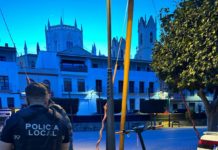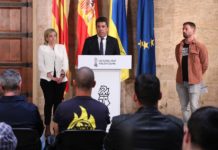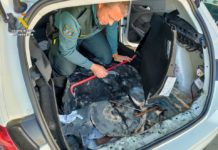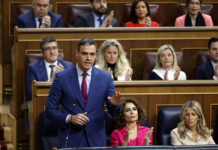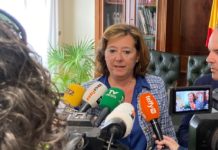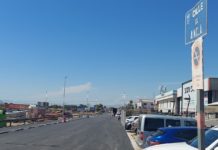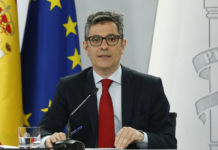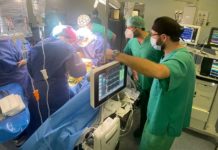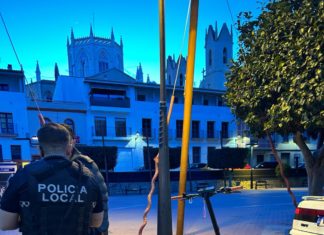Email
July 29
Dear Mr. Editor,
I refer to the Article in the CBN (24-30 July edition) under the heading, ‘Care cash trapped in UK’.
This article raises more questions than the answers it provides regarding a couple resident in Spain where the husband also has assets in another country, in this case the UK, but it could also apply to either or both parties. In the present case the husband has become afflicted with dementia and is apparently now in a private nursing home in Spain. For this reason, such a person can no longer lawfully act on his own behalf. For this reason, his wife is currently having difficulty in releasing her husband’s assets in the UK in order to fund his nursing home care here in Spain, albeit it appears that sometime prior to the husband developing dementia, each party gave a simple power of attorney to the other in the event that such circumstances should arise. These powers were effected in Spain.
However, the couple were not given the most obvious and correct advice when seeking such powers to the benefit of each other. In short they wasted their money.
There are several ways in which to avoid such a situation and there are also pitfalls one needs to be aware of. However, for simplicity the best way to go about this so as to avoid such a situation, as in this present matter, arising and that is to secure the services of a Notary Public from the very outset when advising him/her of the nature and purpose of seeking such powers and most importantly advising the Notary that either one of them have international assets and therefore wish to have the Power of Attorney drawn up so as to allow free movement of their assets outside Spain. To do this it is necessary to draw up such powers in accordance with The Hague Convention 1961 and to have them apostilled.
Currently there are some 65 countries who are members of the Convention.
Legalization of Foreign Public Documents With reference to the Hague Conference on Private International Law (Hague Apostille Convention) is in itself a simple procedure, because all that is required once the Power is drawn up and signed before the Notary, is to then take the power/documents before any State appointed authority for attestation of the signatures on the documents. In the Autonomous Region of Valencia it is the illustrious College of Notaries, which is located in the City of Valencia, but you need to go there with prior appointment which will be arranged by the Notary drawing up the documents. It is a very straight forward procedure.
Apostille means a Certificate or an “Apostille Certificate” issued by a Competent Authority designated by the State on whose territory the public document has been executed. The list of Competent Authorities is notified by each of the Contracting States who are a party to the convention. This certificate certifies the authenticity of the signature, the capacity in which the person signing the document has acted and, wherever required, the identity of the seal or stamp which the document bears.
Once this has been affected then the Power of Attorney is an international legal instrument and must be recognised by each of the member States. Needless, for me to say that both Spain and the UK are Member States, as are most of the other European States.
A word of caution;
All medical authorities coming into contact with persons who are not of sound mind, (This includes those suffering from dementia) and that includes every nursing home in Spain, are lawfully bound to notify an appointed judicial court. This Court will then investigate the matter as to Guardianship. These are very informal proceedings with the respective judge also visiting the person so afflicted. Where a family is involved then they may want to interview other family members in order to ensure that the afflicted person is in proper care and that such other person is able to look after their affairs with all due diligence. This is a sensible law because it protects the welfare of the principle, say the dementia suffer as well as their assets. The Court, if satisfied may award Guardianship, say to the wife, as in this present case or if not so satisfied award Guardianship to the Court. Further, all should be aware that this Court has the power to set aside the power of attorney. It would appear from the article that this case is currently before such a court in Denia.
There are other legal routes by which persons with international assets can protect those assets in the event they become infirmed and that is to follow the legal procedures in each of the countries where such assets are located and at a time when each party has the mental ability to do so. This, at least leaves those persons with assets far more hassle free than the position that the sufferer’s wife now finds herself in. What has surprised me in this present case is where the parties to the Powers of Attorney had not been properly informed at the very outset, although this may have been a matter of poor communication.
Finally, all readers should be aware of the fact that where assets, including bank accounts, are in joint names, those holding those assets, including monies in bank accounts, even though the account may be in joint names, are lawfully obliged to freeze them upon knowledge of the death of one of them. Unfortunately, this then leaves the survivor having to go through due process which can also take much time, although I am aware that banks etc., in Spain are frequently sympathetic towards the survivor at a time when they will need their assets most. I will say no more on that subject, other than you cannot make your will after you have died and that such matters should not be put off until tomorrow.
All persons in the position that this lady now finds herself should seek proper legal advice at the very earliest and here I mean even immediately following ones marriage and certainly where they have children for whom guardianship, general wellbeing and education has to be considered.
David R. Burrage
The article was written by Jack Troughton who responds:
The story was shared with CBN and its readers as a warning and to raise awareness of a potential problem that has now become an expensive courtroom saga. The easiest – and possibly cheapest – solution would have been to obtain a UK and Spanish power of attorney – the former can be completed with an internet form – or an international POA. Hindsight is a wonderful thing.









